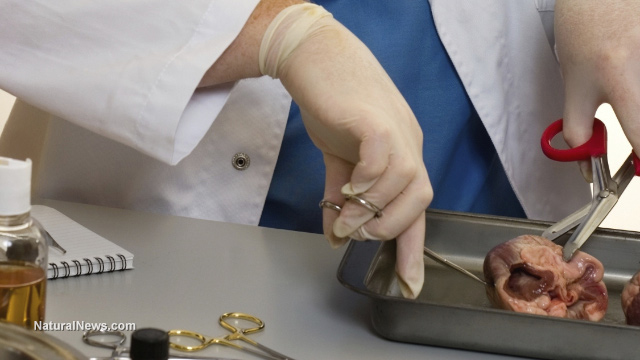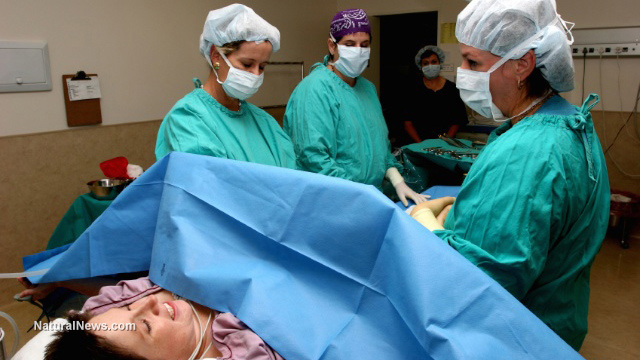Pharma marketed antidepressants to children after hiding the risk of suicide and aggression revealed by clinical trials
A BMJ press release reported, "Children and adolescents have a doubled risk of aggression and suicide when taking one of the five most commonly prescribed antidepressants," according to a study published in The BMJ on January 28, 2016.

Selective serotonin reuptake inhibitors http://www.ssri.news/ (SSRIs) and serotonin–norepinephrine reuptake inhibitors (SNRIs) are the most commonly prescribed antidepressantshttp://dreddyclinic.com/forum/viewtopic.php?f=40&t=32433, the release notes.
Researchers from the Nordic Cochrane Centre in Denmark carried out a systematic review and meta-analysis of 68 clinical study reports of 70 trials involving 18,526 patients to examine use of antidepressants and associated serious harms, including "deaths, suicidal thoughts and attempts as well as aggression and akathisia, a form of restlessness that may increase suicide and violence."
But "because of the poor design of clinical trials that assess these antidepressants, and the misreporting of findings in published articles," the experts report, "the true risk for all associated serious harms—such as deaths, aggression, akathisia and suicidal thoughts and attempts—remains unknown for children, adolescents and adults."
The researchers examined "trials that contained patient narratives or individual patient listings of associated harms," the authors explained, that "are often not included in published trial reports." They also "analysed clinical study reports, prepared by pharmaceutical companies for market authorisation, and summary trial reports, both of which usually include more information."
Clinical study reports for duloxetine (Cymbalta), fluoxetine (Prozac), paroxetine (Paxil), sertraline (Zoloft) and venlafaxine (Effexor) were from regulatory agencies in the UK and Europe. Reports for duloxetine and fluoxetine were also taken from Eli Lilly's website.
"However, clinical study reports could not be obtained for all trials and all antidepressants http://www.dreddyclinic.com/forum/viewforum.php?f=40, and individual listings of adverse outcomes for all patients were available for only 32 trials," the release noted.
"The true risk for serious harms is still unknown [because] the low incidence of these rare events, and the poor design and reporting of the trials, makes it difficult to get accurate effect estimates," the study's authors explained.
The researcher's found limitations in trial designs and reporting that may have lead to "serious under-estimation of the harms," the authors wrote.
They compared the results from the study reports with individual patient listings or narratives of adverse effects. "This revealed misclassification of deaths and suicidal events in people taking antidepressants. For example, four deaths were misreported by a pharmaceutical company, in all cases favouring the antidepressant, and more than half of the suicide http://www.dreddyclinic.com/forum/viewtopic.php?f=39&t=26325 attempts and suicidal ideation, for example, were coded as 'emotional lability' [sic] or 'worsening of depression,'" the press release reported.
"In the summary trial reports on Eli Lilly's website, almost all deaths were noted, but all suicidal ideation events were missing, and the information on the remaining outcomes was incomplete," the authors wrote in the BJM study.
"Because of the shortcomings identified and having only partial access to appendices with no access to case report forms, the harms could not be estimated accurately," they concluded.
"Many cases of aggressive behaviour have been reported," they wrote, "but, unlike with suicidality, little systematic research has been undertaken." Perpetrators of school shootings http://psychdrugshooters.com/ and similar events have often been reported to be users of antidepressants and the courts have in many cases found them not guilty as a result of drug induced insanity, they point out in the study.
"We believe our study shows that, despite using clinical study reports, the true risk for serious harms is still uncertain," they wrote. "The low incidence of these rare events and the poor design and reporting of the trials makes it difficult to get accurate effect estimates."
Therefore, the authors "suggest minimal use of antidepressants in children, adolescents, and young adults, as the serious harms seem to be greater, and as their effect seems to be below what is clinically relevant," they advised in the study.
Sources:
http://www.bmj.com/company/wp-content/uploads/2014/07/antidepressants.pdf[PDF]
http://www.bmj.com/content/352/bmj.i65
http://www.dreddyclinic.com/forum/viewforum.php?f=40
Read more
Organ transplants for HIV-positive people officially approved in the United States
Three years after the U.S. Senate passed the HIV Organ Policy Equity (HOPE) Act, Johns Hopkins has finally been given the green light to perform organ transplants on HIV positive patients http://www.iflscience.com/health-and-medicine/first-hiv-positive-organ-transplants-given-go-ahead-us. The hospital will go down in history as the first American institution to perform an HIV-positive kidney transplant, as well as the first ever medical institution to attempt an HIV-positive liver transplant. Dorry Segev, associate professor of medicine with Johns Hopkins, has hailed this as a "new chance at life" for individuals with end-stage organ disease.

The researcher points out that the HOPE Act is a long-awaited change, particularly since HIV-positive individuals die on the waiting list for transplants at a significantly higher rate than HIV-negative patients.
An international issue
Without a doubt, there is a worldwide organ shortage, and in this international context, the U.S. is right at the top of the list http://www.livescience.com/52526-rarity-of-organ-donations-forcing-patients-to-get-creative.html. As we speak, over 120,000 people are waiting for transplants, hoping that someone will either donate tissue they can live without, or sign that donor card. However, even though the need for transplants has grown, their availability numbers have remained steady, while the number of living donors has actually dropped since the early 2000s.
Within this community of patients in dire need of a transplant, there's a smaller group of people, HIV positive individuals, who in the past couldn't have a transplant even if there was a suitable donor.
From 1988 to 2013, it was illegal in the U.S. to either donate your organs to other people suffering from HIV, or to receive a transplant as an HIV-positive patient. Despite the fact that AIDS has been turned around by modern drugs from an often fatal disease into a chronic, but manageable illness, victims' life-spans have still been affected by kidney and liver failure.
Various drugs and even "vaccines" http://www.dreddyclinic.com/forum/viewtopic.php?f=50&t=35512 developed for AIDS, involve a veritable cocktail of chemicals that can have awe inspiring side-effects http://www.sideeffects.news/, including dementia http://dreddyclinic.com/forum/viewtopic.php?f=50&t=25601.
Even when the body manages to deal with the strain these drugs put on its routine processes, the kidney and liver inevitably still suffer. The fact is, the human anatomy is not designed to deal with these compounds on a long-term basis, and ultimately there's only so much it can handle before it gives in.
People are reaching out
Even though the authorities might not be doing much to raise the awareness of the population, those who are already familiar with America's need for organhttp://www.dreddyclinic.com/forum/viewtopic.php?f=2&t=20683&p=47433 donors try their best. From car-signs to social media posts, regular citizens are doing everything they can. In some cases, it happens that a close friend, someone who didn't know that they could be a live donor, and who wasn't aware of the situation, decides to give a helping hand.
Particularly when it's about kidneys – what the U.S.A is dying for – there are very few incompatibilities between donors and patients. Revolutionary techniques in medical surgery have made it possible to increase these chances even more by analyzing the blood chemistry of both the donor and the receiver, the use of anti-rejection medication, and even the use of robotics.
In the end, regardless of how prepared doctors are to perform this surgery, or new legislation allowing previously disadvantaged groups access to organ donations, nothing can happen without the tissue itself. While for some, becoming a live donor might seem like a lot to ask, donating your organs once you're dead will save the life of another. Imagine that you needed a transplant to survive, what would you say to those who insist on keeping their tissue even when they're six feet under?
Sources include:
http://www.iflscience.com/health-and-medicine/first-hiv-positive-organ-transplants-given-go-ahead-us
http://www.livescience.com/52526-rarity-of-organ-donations-forcing-patients-to-get-creative.html
http://hub.jhu.edu/2016/02/08/first-hiv-positive-kidney-liver-transplants
http://www.dreddyclinic.com/forum/viewtopic.php?f=94&t=6264
Read more
US meat and poultry widely contaminated with bacteria included
How would you like a big, juicy burger loaded with onions, mustard, ketchup -- and a big helping of drug-resistant Staphylococcus aureus (S. aureus), a bacteria linked to a wide range of human diseases?
If you find that dish stomach-churning instead of appetizing, then maybe you should think twice before eating not only meat but chicken and turkey, too, at least in the U.S.
According to a nationwide study just released by the Flagstaff, Arizona-based Translational Genomics Research Institute (TGen), meat and poultry from U.S. grocery stores have an unexpectedly high rate of dangerous disease-causing bacteria, including antibiotic resistant superbugs. In fact, almost half (47 percent) of all meat and poultry samples tests were contaminated with S. aureus.
What's more, 52 percent of these contaminated meats contained superbugs, meaning the bacteria were resistant to multiple classes of antibiotics.That adds up to multi-antibiotic resistant Staph germs being present in about one out of every 4 samples of meat, chicken or turkey.
"For the first time, we know how much of our meat and poultry is contaminated with antibiotic http://dreddyclinic.com/forum/viewtopic.php?f=4&t=1356-resistant Staph, and it is substantial," Lance B. Price, Ph.D., senior author of the study and Director of TGen's Center for Food Microbiology and Environmental Health, said in a statement to the media.
The research, published today in the journal Clinical Infectious Diseases, is the first national investigation of antibiotic resistant S. aureus in the U.S. food supply. The scientists collected and analyzed 136 samples of beef, chicken, pork and turkey sold under 80 brands in 26 retail grocery stores in Los Angeles, Chicago, Fort Lauderdale, Flagstaff and Washington, D.C.


So where does this downright nauseating contamination come from? The TGen researchers reported that DNA testing shows the food the animals themselves were fed is likely the major source of contamination.
"The fact that drug-resistant S. aureus was so prevalent, and likely came from the food animals themselves, is troubling, and demands attention to how antibiotics are used in food-animal production today," Dr. Price added.
The dirty truth many Americans -- especially meat http://www.dreddyclinic.com/forum/viewtopic.php?f=15&t=34685 eaters -- don't want to face is that conditions on so-called industrial farms are not only often inhumane but downright sickening. Animals raised for slaughter are packed together densely and steadily fed low doses of antibiotics in their food. The new report concludes these industrial farms are the ideal breeding grounds for drug-resistant bacteria that can move from animals to the human population.
"The emergence of antibiotic-resistant bacteria -- including Staph -- remains a major challenge in clinical medicine," Paul S. Keim, Ph.D., Director of TGen's Pathogen Genomics Division and Director of the Center for Microbial Genetics and Genomics at Northern Arizona University (NAU), emphasized in a media statement.
"This study shows that much of our meat and poultry is contaminated with multidrug-resistant Staph. Now we need to determine what this means in terms of risk to the consumer," Dr. Keim, a co-author of the paper, added.
But doesn't the U.S. government routinely survey retail meat and poultry for drug-resistant bacteria? The study points out the feds only check for four types of superbugs -- but S. aureus is not among them. The paper urges a more comprehensive inspection program and points out S. aureus can cause devastating health problems.
While it's true Staph germs can usually be killed with proper cooking, the scientists pointed out Staph still poses a substantial health risk through improper food handling and cross-contamination in the kitchen. Infections with S. aureus can cause a range of illnesses from minor skin infections to life-threatening diseases, such as pneumonia, endocarditis (inflammation of the heart) and sepsis (infection in the bloodstream).
And should you get one of these antibiotic-resistant strains from meat or poultry, treatment can be difficult.
"Antibiotics are the most important drugs that we have to treat Staph infections; but when Staph are resistant to three, four, five or even nine different antibiotics --like we saw in this study -- that leaves physicians few options," Dr. Price stated.
For more information: http://www.tgen.org/
Read more
Natural childbirth is key to beginning life with a strong immune system
Children delivered by cesarean section (C-section) may end up with hampered immune systems, according to a study conducted by researchers from the University of Copenhagen and published in the Journal of Immunology on July 10.

"The study shows that [mice] delivered by Caesarean section had developed a lower number of cells that strengthen the immune system," researcher Camilla Hartmann Friis Hansen said.
C-sections linked to hampered immune function
A C-section consists of surgically removing a child from a mother's abdomen, rather than allowing the child to emerge naturally through the birth canal. Although C-sections are medically recommended only in cases where a vaginal delivery would threaten the mother or child's life, U.S. C-section rates have now reached record highs.
This trend has been widely attributed to the fact that C-sections offer increased profit and convenience for doctors. But studies have shown that C-section deliveries carry health costs.
"Babies born via C-sections have an increased chance of having to be administered into the NICU [neonatal intensive care unit] and suffer from breathing problems," said Maureen Corry, Executive Director of Childbirth Connection. "Mothers are more likely to have a major infection, they are at higher risk for embolisms, for bleeding, and for long term consequences... some of which can be life threatening."
Studies have also shown that children delivered by C-section have a different composition of microorganisms (flora) in their guts from children delivered vaginally. Given the role that intestinal flora play in regulating many of the body's systems, this difference may account for some of the long-term health effects observed in C-section children, including higher rates of allergies and asthma and a 20 percent higher risk of diabetes.


Body less able to recognize harmless bacteria
In the new study, researchers compared the immune development of mouse pups delivered via C-section with pups delivered vaginally. They found that the C-section mice had significantly lower levels of a type of immune cell that plays a key role in preventing the immune system from attacking harmless bacteria or the body's own cells.
These findings are particularly important because autoimmune disorders such as allergies, type 1 diabetes and Crohn's disease are characterized by improper immune reactions that target harmless substances or the body's organs. The researchers now hope to study whether mice delivered via C-section are predisposed to autoimmune diseases.
"The experiments on mice may give us an idea of what would be interesting to study in more detail in clinical trials, so that in the long term, we may be able to develop methods for strengthening the immune system in newborns who are predisposed to autoimmune diseases," Professor Axel Kornerup Hansen said.
The study also appears to support the hygiene hypothesis, which posits that exposure to harmless substances and microorganisms from the environment (such as the natural flora of the mother's birth canal) plays a key role in developing the immune system of newborns and children. According to this hypothesis, an overly sterile environment can actually harm the immune system.
A study conducted by researchers at Henry Ford Hospital and presented at the annual meeting of the American Academy of Allergy, Asthma and Immunology in 2013 also suggests that C-sections may interfere with healthy immune development. In that study, researchers found that, by age two, children delivered via C-section were more likely to demonstrate an elevated immune response when exposed to common allergens. This "sensitization" is considered the first step in developing allergies.
"This further advances the hygiene hypothesis that early childhood exposure to microorganisms affects the immune system's development and onset of allergies," lead author Christine Cole Johnson said. "We believe a baby's exposure to bacteria in the birth canal is a major influencer on their immune system."
Sources for this article include:
http://healthsciences.ku.dk/news/news2014/mouse-study-natural-birth-may-strengthen-the-immune-system/
http://www.dreddyclinic.com/forum/viewtopic.php?f=42&t=35409
http://www.dreddyclinic.com/forum/viewtopic.php?f=42&t=35411
http://www.dreddyclinic.com/forum/viewtopic.php?f=18&t=35076
http://truthwiki.org/Immune_System
Read more




